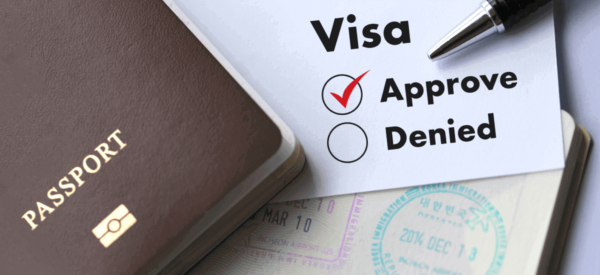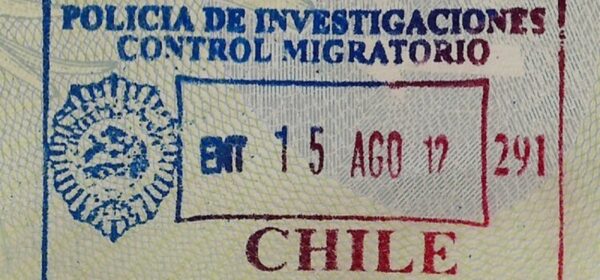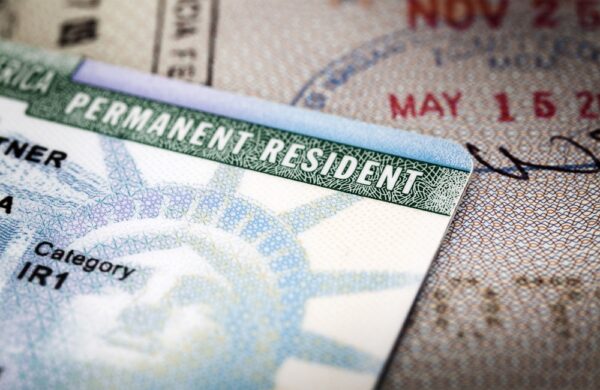As an international student, securing admission abroad is not the only hurdle you will have to face. After you have been accepted into your dream university abroad, there's one final hurdle to overcome, which is the embassy interview. For many students, this could be an uneasy part of the process. However, is it very possible to walk into your interview feeling calm, confident, and fully prepared? Yes, and here you have the most common embassy interview questions for study visas. How you can answer these sample questions with ease is also covered. You can also read about Embassy Interview Questions For Visitor/Tourism Visa.
What is a Study Visa Embassy Interview?
The primary goal of an embassy interview is to see if an applicant has a genuine reason for studying in a foreign country. A study visa embassy interview is more like a formal conversation where you, as an applicant, speak one-on-one with your visa interviewer about your academic pursuit abroad. Major things that will be assessed during the visa interview include your genuine intention to study, university choice, financial preparedness, and the likelihood of returning to your home country after completing your education.
Common Embassy Interview Questions for Study Visa
Knowing what kinds of questions to expect is essential when preparing for a study visa interview. Embassy officials want to ensure you're serious about your studies, have the financial stability to support yourself, and intend to return home after completing your degree.

To prepare ahead and boost your confidence, here are some of the most common embassy interview questions you'll likely come across for a study visa.
1. Why Do You Want to Study Abroad?
When asked this question, your consular officer wants to understand your motivation for studying abroad and not in your home country. They also want to know whether your reasons are genuine. When answering, give concise answers and be specific about your academic and career goals. Explain how studying abroad will help you achieve these goals, such as access to specialized programs, international exposure, or better career opportunities.
Here’s an instance, ‘I want to study abroad because the University of Chicago offers a specialized program in Robotics engineering, which is unavailable in my home country. This program will provide me with the skills I need to advance my career in the field.‘ Just substitute your chosen course and university.
2. Why Did You Choose This Country/University/Program?
Your consular officer is asking this question because the embassy wants to know why you chose a particular destination, academic institution, and field of study. They want to be sure that you didn’t just pick a country, university, or academic program randomly and decide to go with it. Answering this question adequately is your opportunity to show that you've researched your desired country and the university. Explain what makes it the best choice for your educational development and future employment. Mention specific programs, practical training, faculty members, or opportunities that attracted you to the school. If you received multiple offers from different universities, explain why you chose the university you finally settled for.
3. Can You Explain Your Academic Background and Qualifications?
These visa interview questions are interwoven, and you might be asked in succession. When answering this question as an international student, talk about your degree, where you finished, your program of study, and your specialization. Tell them about your experiences through coursework, internships, or projects. Likewise, mention how you plan to build on that foundation by pursuing further studies to gain more skills.
On the other hand, if you're applying for undergraduate studies and don't have prior university experience, you can focus on your high school education, relevant courses, skills, and the experiences you've gained over time. Mention that studying abroad will allow you to acquire advanced knowledge to achieve your career goal and set you up for better employment opportunities.
4. How Many Universities Did You Apply To, Did You Receive an Acceptance From All of Them?
If you are being asked this question, the visa interview officer wants to know more about your academic capability and choice of university. Remember that you're not trying to impress anybody; just be honest and state the number of universities you applied to and how many acceptance offers you received. Being honest about the number of acceptance offers shows that you're transparent, which is what you need when answering embassy interview questions for a study visa.
5. Where Did You Complete Bachelors Degree Program?
This question is usually for students aiming to further their university program outside their country. You will be asked to mention the name of the university you finished from, your field of study, and your grade. You don't have to explain everything about your undergraduate studies; just be straight to the point.
Along with this question, you might be asked the reason for your academic pursuit and why you decided to further your studies instead of going straight into the labor market. All you need to do is highlight the role of advanced education in your career and mention how returning to school will give you a more profound knowledge you might not get from working right away. Also, tell them how you're looking into long-term goals for your career plans, which working immediately won't help you achieve.
6. Have You Ever Traveled Abroad Before?
Your consular officer might ask if you've been to your destination country before. If you've been there, mention the reason for your previous visit. If you’ve not, say you've not had the opportunity to visit or travel there while showing excitement and preparation for a new experience there.
7. How Much is Your School Fee, and How Will You Fund Your Studies?
To be sure that you have the financial capability to support yourself during your studies, asking about your school fees and how you will fund your studies is one of the embassy interview questions for a study visa you will face. This is to ensure that you will not face financial difficulties once you’re there.
Tell the consular what your school fees cost, and be prepared to provide precise funding details when answering this question. Mention any scholarships, personal savings, or financial support from family members. Show that you have planned your finances well, you can also provide financial documents to back up your claim.
8. Who is Your Sponsor?
In addition to knowing your school fees and how you will fund them, you might be asked who your sponsor is, which is a common interview question. When responding to this question, provide an honest answer about who your sponsor is. Talk about their financial status and their importance in your education funding, whether it is your family, relative, or a specific organization. You might be asked what your sponsor's annual income is, so ensure you have that information as well.
9. Where Will You Live?
Give specific details about your accommodation, and mention whether it's the university dormitories, private rentals, or living with a family or friend. Whatever accommodation option you choose, make sure you have a solid reason behind them. Let's say you want to opt for the university dormitories during your time on campus. You can mention that you are doing so because you want to connect with other students while getting use to the new culture.
10. What Are Your Career Plans After Graduation?
To assess your long-term plans and if you plan on returning to your home country after your academic program, you might be asked what your Post-graduate plans are during your visa interview. Just express your intent to use your education abroad to advance your career in your home country. Explain how the skills and knowledge you gain will help your future career goals. If you have more details about your post-graduation plans, you can mention them.
11. Do You Know Anyone in the Country?
When your interviewer asks this question, they want to know about your connections to the destination country. Be honest about your family connections. If you have friends or family over there, say so, but if you don't, also say so. Explain that you look forward to experiencing the country's culture and meeting new people.
12. Why Should You Be Given a Student Visa?
This question right here is tricky, and you must be careful when answering it. Try to convince the consular officer why you should be given a student visa. Don't mince words, be clear, and don't sound desperate about leaving your home country. Also, give your consular the impression that you plan to return to your country of residence.
Tips for a Successful Embassy Study Visa Interview
Here are some tips to help you have a smooth study visa interview.
1. Practice Your Answers in Advance
Rehearsing your answers is one of the best ways to prepare for your interview. Go over common questions with a friend or family member and practice answering confidently. Doing this will help you gather your thoughts and avoid messing things up during the actual interview. It's also a great way to refine your answers and ensure they align with your application.
2. Give Clear Answers
Giving unclear responses when answering embassy interview questions can seem like a big red flag to the consular officer. Make sure you have solid, specific reasons for choosing your destination and university. Discuss what attracted you to the program, how it aligns with your academic goals, and how it will help you achieve your long-term career plans. This shows you've done your research and are serious about studying abroad. Even if you mean no harm, not having a solid reason for choosing your destination could suggest your intentions are not genuine, which might lead to a visa denial.
3. Don't Show Desperation to Leave Your Home Country
While it's normal to mention that you're excited about the opportunities abroad, you should avoid giving the impression that you plan to stay permanently. Don’t show desperation to leave your home country. The visa officer wants to ensure that your primary reason for being in the country is education, not immigration. Even if you're open to working abroad after your studies, emphasize your long-term intention to return home and use your skills there.
4. Show That You’re Financially Prepared
One of the major concerns for visa officers is whether you can financially support yourself during your studies. If you can't provide a clear, realistic financial plan, this might lead to visa denial. Be prepared to give details of scholarships, savings, or family support, and have the financial documents to back it up. A solid financial plan reassures the visa interview officer that you're prepared for the expenses of studying abroad.
5. Be Polite and Professional
The impression you give off at first matters, and that’s where your assessment begins. Your behavior during the interview is just as important as your answers. Dress appropriately; business casual is usually a safe bet. Make eye contact and maintain a calm, respectful demeanor. It's important to show that you're serious, mature, and professional throughout the interview process.
6. Bring All Required Documents For Your Interview
To simplify your interview process, you should bring all necessary documents to back up your case. You should come along with documents such as your passport, financial statements, admission letter, school transcripts, receipts, passport photo, and visa application forms. Also, having a list of the documents needed and arranging your documents accordingly will save you lots of stress while you give off a good impression.
Conclusion
Preparing for a study visa interview is about being transparent, honest, and confident in your answers. Understanding the most common embassy interview questions for a study visa and practicing how to answer them is an essential step to significantly improve your chances of a successful outcome. Wishing you a successful study visa interview!
















